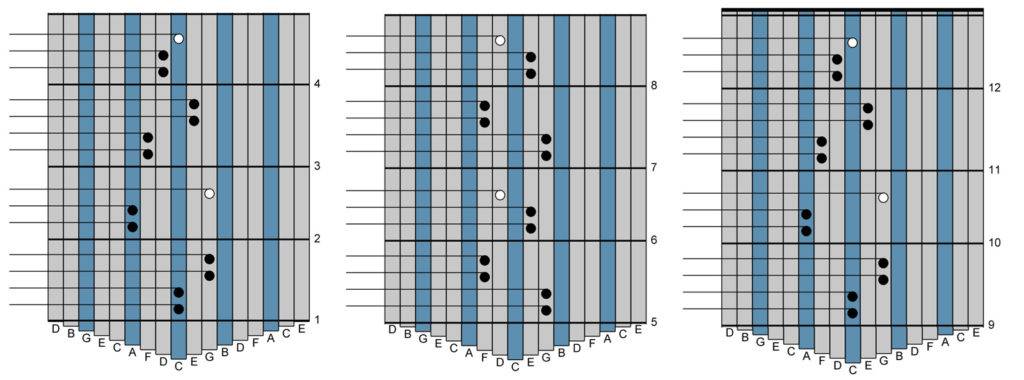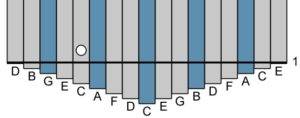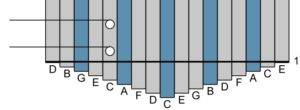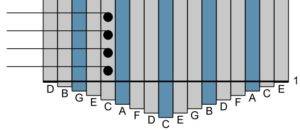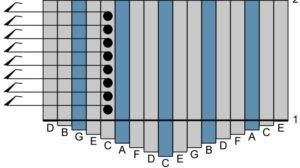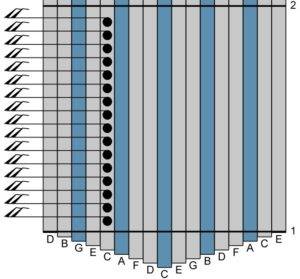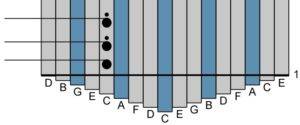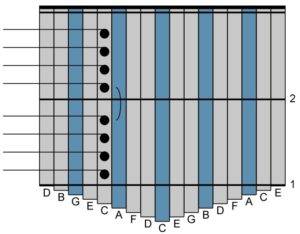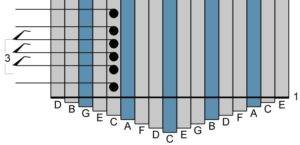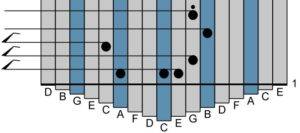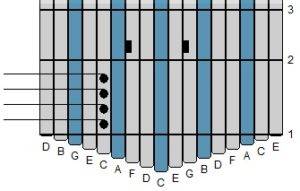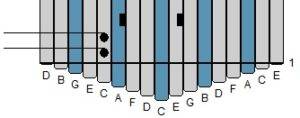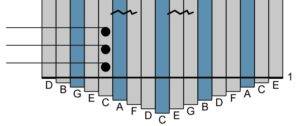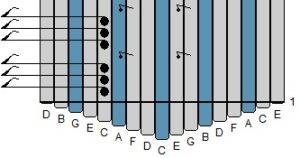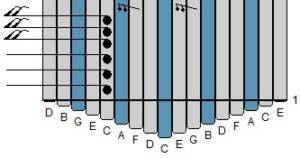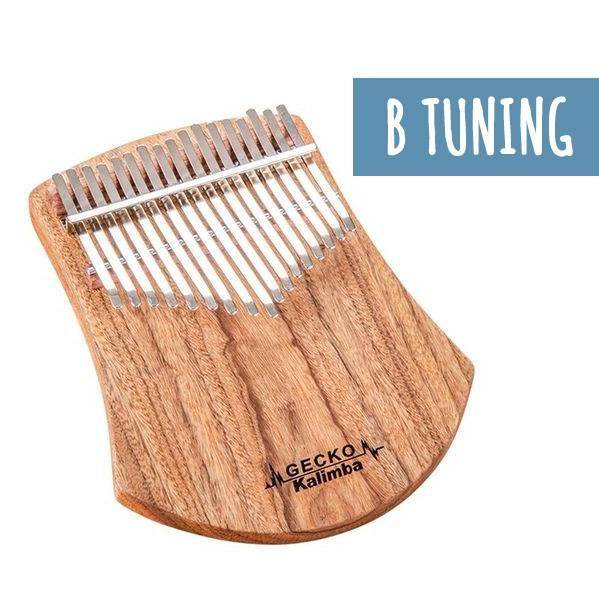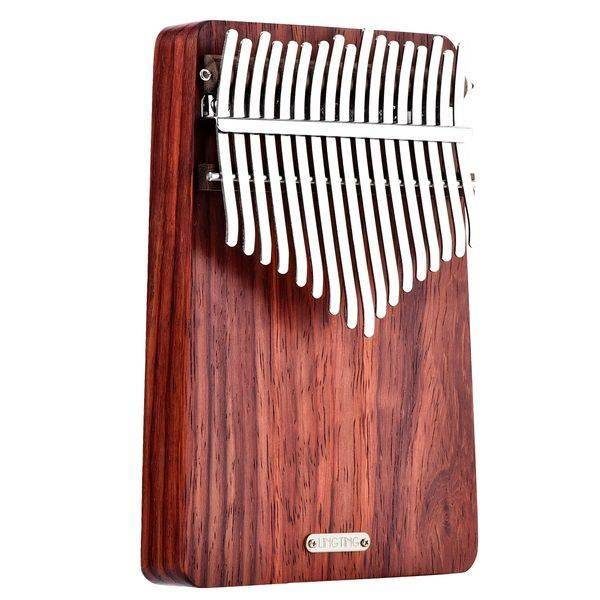How to play the Kalimba
It’s so easy to play the Kalimba, and so much fun to hear the beautiful notes and songs that you can play after just a short amount of time spent learning.
Here is a diagram of a Kalimba showing all the parts.
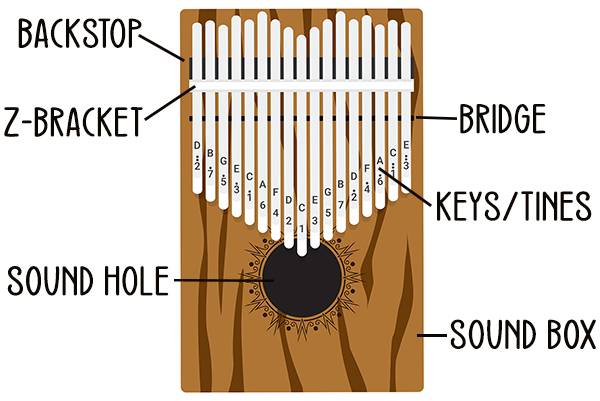
Hold your Kalimba loosely and comfortably using both hands at a level where both of your thumbs are hovering over the ends of the keys and have enough stretch to cover all the keys so you can move back and forth.
You will pluck the keys on the left hand side of your Kalimba with your left thumb and the keys on the right hand side of your Kalimba with your right thumb.
Simply pluck the ends of the keys to create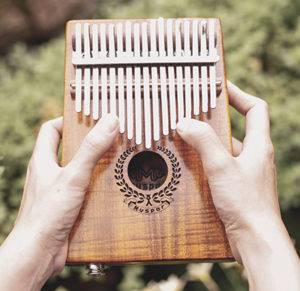 sweet and melodious notes.
sweet and melodious notes.
You can play notes one at a time or two, or even three at a time, to create really harmonous chords.
It’s fun to just dive in and start playing. You can also download plenty of Kalimba sheet music from various sources around the internet. It’s very easy indeed to read Kalimba music, keep reading for our next section about how to read Kalimba tablature.
How to read Kalimba Tablature
Tablature, or ‘tabs’ for short, is sheet music and is incredibly easy to read even for the extreme beginner. You don’t need any former experience reading music. Kalimba tablature is basically just an image of the instrument itself.
In this example we are ready tablature for a 17 key Kalimba, the most popular type.
This tablature below is for the song ‘Twinkle Twinkle Little Star’.
You can see that the tabs contain 17 vertical columns. These refer to each of the Kalimba’s keys, or notes. Every third key is a different colour to make it easier to differentiate the notes on the fly.
In the accessories pack that you receive with your Kalimba there will be some coloured stickers that you can place on the keys on your Kalimba so that it matches the tablature, making it super quick and easy to find which note to play.
You read Kalimba tabs from the bottom to the top. This is easy to remember by following the direction of the small numbers written to the right of the tablature (1, 2, 3, 4 etc). These numbers represent the bars of the music. Each bar in a song contains the same number of beats, also known as a time signature.
Reading from top to bottom, whenever you see a note on one or more keys, you pluck them in sequence.
There are different notes representing different lengths of time each note is held.
For this example let’s say we are reading a tab in four-four time (4/4), which is very common. This means there are four beats for each bar of the music.
These four beats could be made up of four equal length beats. These are known as crotchets or quarter notes. Or it could be made up of longer or shorter length notes like half notes or eighth notes, and even rests where you skip a beat, or beats, without playing any notes.
You can identify the types of each note by whether or not it’s body is solid or not, and by the line extended to the left of each note.
The images below show what each type of note looks like in Kalimba tablature and how each fits into a single bar with a time signature of 4/4 (meaning 4 beats per bar).
RESTS
See how easy it is to read Kalimba tabs?
You’ll be playing full songs in no time at all. Even the most novice musician will easily be able to follow Kalimba tabs.
With a bit of practice playing your favourite songs you’ll soon learn how to play without needing to refer to the tabs at all.
The Kalimba truly is the easiest instrument to learn!

17 Key Pink Kalimba
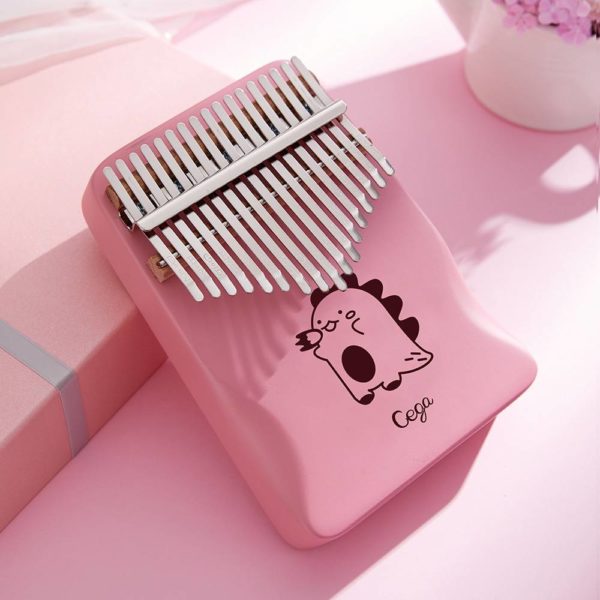 Dinosaur
Dinosaur
 Lucky Cat
Lucky Cat
 Snow Cherry
Snow Cherry
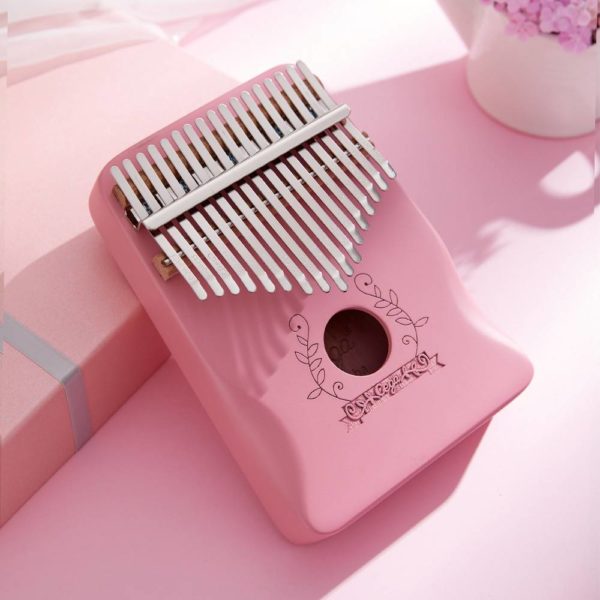 Vine
Vine
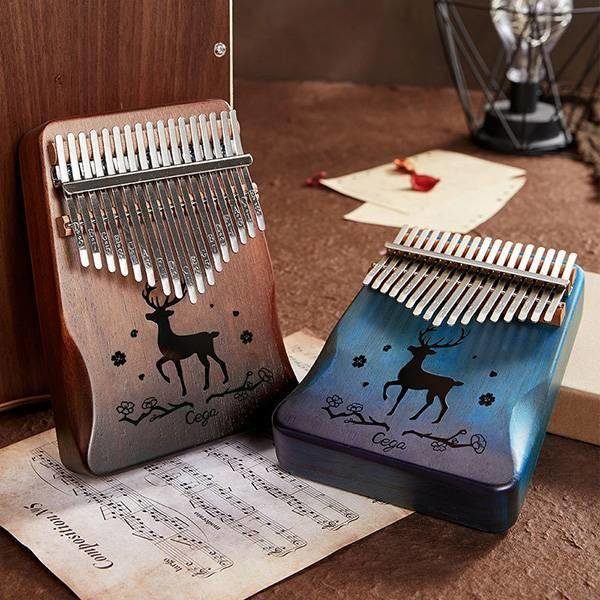
17 Key Kalimba – Deer
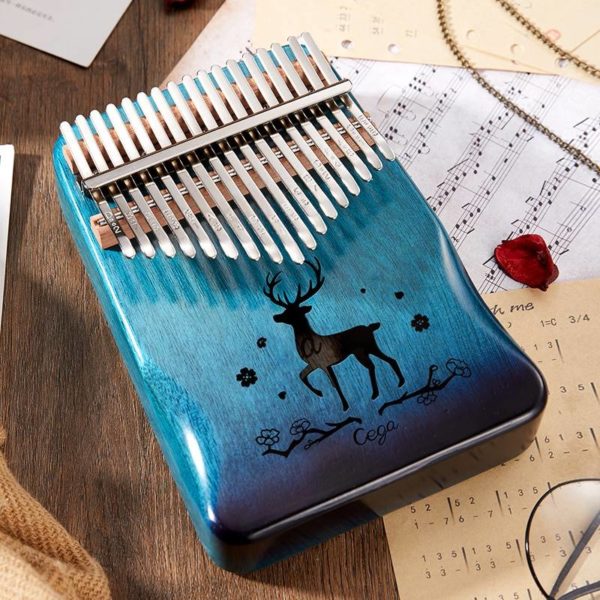 Blue
Blue
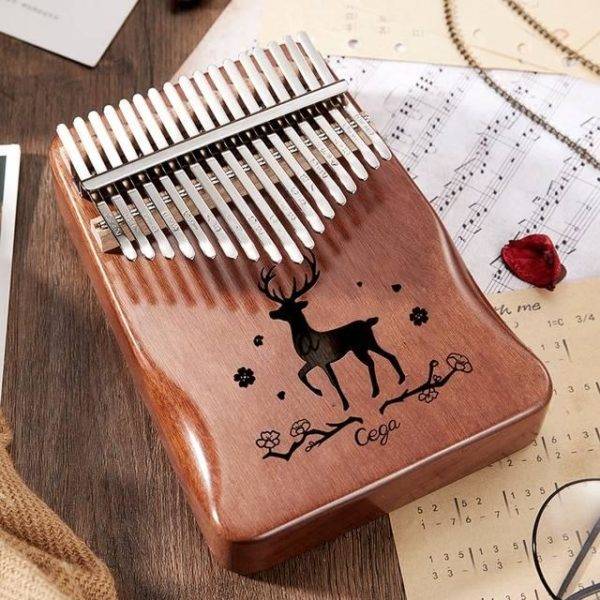 Brown
Brown
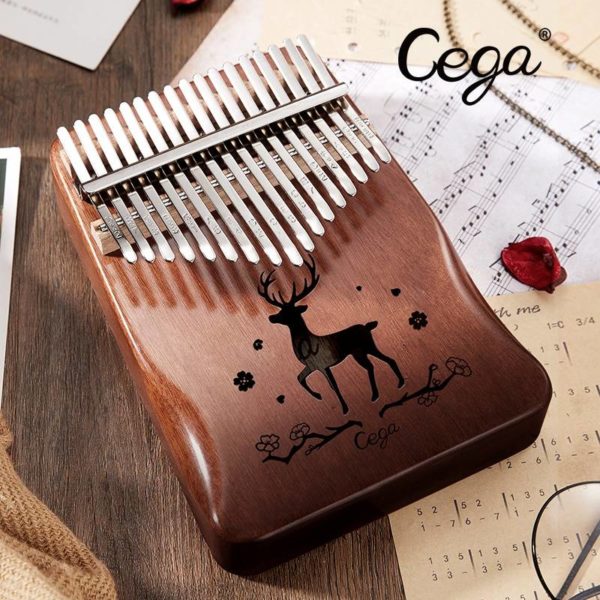 Brown Ombre
Brown Ombre


